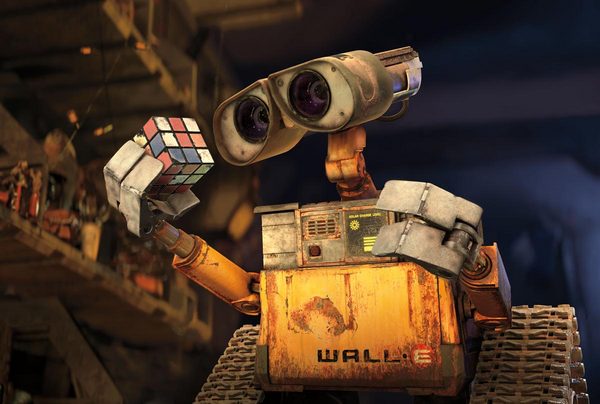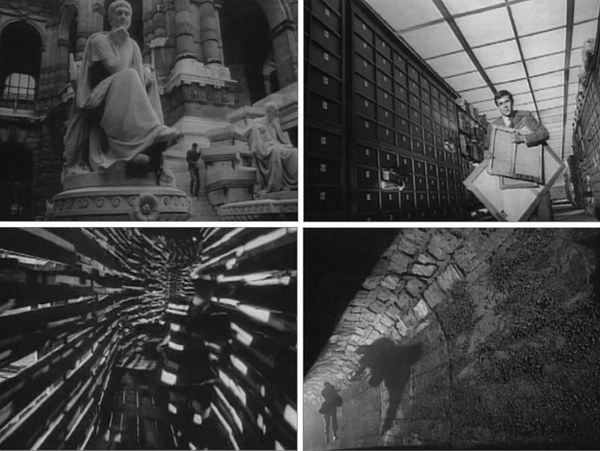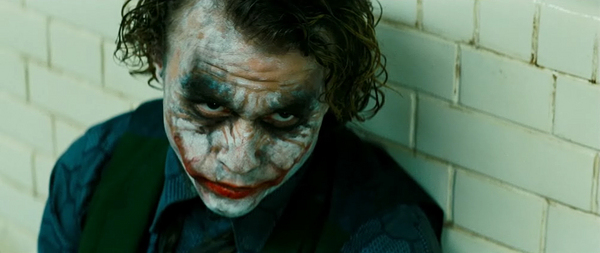August 27, 2008
Whose breath was taken?

- Something over half a billion pounds appears to have vanished on consultants, many of them laughably hired as "cost controllers" to be paid millions in bonuses as costs soared. Architects underplayed their bids, since they knew that budgets would be torn up once nationalist hysteria was aroused. More is said to have been spent on professional fees than has been earmarked for Olympics training itself.
Simon Jenkins on 2012 in The Guardian. Compare with my piece on hauntology and space at Frieze last week. Compare also with Iain Sinclair's, for me disappointing, recent piece on 2012 in the LRB; a squandered opportunity for him to turn out a vigorous polemic, such as I saw him deliver at Tate Britain last year.
2012 discontent will only build over the next four years. Even in the immediate wake of "Team GB's" success in Beijing, the enthusiasm for 2012 has remained lukewarm in London; partly that's because of English* miserabilism, the fatalistic assumption that everything produced here must be overpriced, ersatz, second-rate, half-assed. The Millennium Dome - which, even though it was initiated by Major's Tories, has become the abiding symbol of the New Labour project - has fatally damaged New Labour's reputation for being able to deliver grandiose projects on time and on budget. Authoritarian capitalism can deliver a spectacle like the Beijing games; the kludges and fudges of Brown's third way capitalism will produce something incompetent and vacuous (much like the dismal handover to London section in the Beijing closing ceremony: a litany of the clapped-out and the obvious - a red bus, David Beckham, Leona Lewis, Jimmy Page...) There is an opportunity to politicise the anger against 2012, to convert it from the grumbling miserabilism which constitutes a ambient backdrop to English cultural life into a focus of discontent against what Steven Shaviro calls "aesthetic capitalism".
Olympic opening ceremonies are classic cases of something designed for the gaze of the big Other. The Beijng ceremony - and Jenkins is very good on the way that the IOC pushed for a hyper-spectacular opening ceremony to make up for the boring nature of most of the Olympic sports - is now routinely referred to as "breathtaking", but is there any actual individual whose breath was taken by it? Perhaps it is in the very nature of pomp that it actually boring, but by reputation 'awe inspiring'. The displacement of sport - whose drama is fundamentally unpredictable - by the rigid predictability of an efficiently choreographed PR pseudo-event is a whole story in itself.

The Chinese politburo understood that it is what appears on TV that matters: which is why, in the by now notorious incident, they were quite happy to replace a young girl singer at the opening ceremony with a body double, and to augment the fireworks with digital effects. Here is a case where, to use Jonathan Beller's formulation, "to look is to labour": value was added to both the IOC and China's brands by all those dissolute gazes which idly passed over the opening ceremony. One irony of the attention economy is that no-one is required to pay that much attention; all that matters is that the pseudo-event has been seen, has passed through the gaze of an audience that stands in for the big Other.
* I write "English", rather than "British", deliberately ... the strain of miserabilism I'm talking about is peculiar to the country that, notionally, is the 'dominant' one in Britain; it centrally relates to a sense of wounded status, of disappointed entitlement...
Robot historian in the ruins
- Ideology is not something foreign, something in a film with a strange power to impose itself on our minds; ideology is what we and the film share, what allows for the transfer of specific meanings between film and audience (a transfer which is not one way). As Žižek puts it, ideology is made up of “unknown knowns”; that is to say, the problem with ideology is not that it is a falsehood of which we might be persuaded, but because it is a truth that we already accept without knowing it.
Voyou's remarks on readings of The Dark Knight makes some important points about ideology. Focusing on the supposed "message" of the film – as both neoconservative interpretations of the film, and their critics, including me, do – is in danger of missing the way in which ideology works in capitalism. The role of capitalist ideology is not to make an explicit case for something in the way that propaganda does, but to conceal the fact that the operations of capital do not depend on any sort of subjectively assumed belief. It is impossible to conceive of fascism or Stalinism without propaganda - but capitalism can proceed perfectly well, indeed better, without anyone making a case for it.
In the responses to The Dark Knight I posted here, it was Wayne Wedge who captured the way that the film functions as a hyper-object in late capitalism. The very multivalence of The Dark Knight, its capacity to generate radically different interpretations, to elicit discourse, is what makes it a highly efficient meta-commodity. A text with a single monologic Message, even supposing such a thing could exist, would not be able to 'provoke the debate' which capitalist culture now feeds upon.
It not only that a cultural object can be opposed to capitalism on the level of content, but it serve it on the level of form; one could convincingly go further and argue that the ideology of capitalism is now 'anti-capitalist'. The villain in Hollywood films is routinely the 'evil multinational corporation'. So it is, once again, in Disney/ Pixar's Wall-E, which, like The Dark Knight, has provoked all kinds of bizarre conservative readings. "This is perhaps the most cynical and darkest big-budget Disney film ever," claims Kyle Smith. "Perhaps never before has any corporation spent so much money on insulting its customers. (By way of parenthesis, since it isn't relevant to my argument here, this, from Paul Edwards, is priceless: "WALL-E is the story of what results when a liberal vision of the future is achieved: government marries business in the interest of providing not only 'the pursuit of happiness' but happiness itself, thus creating gluttonous citizens dependent on the government to sustain their lives.")
Wall-E's attack on consumerism is easily absorbed. The 'insult' that provoked Kyle Smith into disgust was its image of humans as obese, infantilised chairbound consumers supping pap from cups. Initially, it might seem subversive and ironic that a film made by a massive corporation should have such an anti-consumerist and anti-corporate message (it is made clear in the film that the mega corporation Buy N Large is chiefly responsible for the environmental depredation which has destroyed earth as a human environment). Yet it is capital which is the great ironist, easily able to metabolise anti-corporate rhetoric by selling it back to an audience as entertainment. Besides, on the level of content, Wall-E ends up serving capitalist realism, presenting what we might think of as the very fantasies of capital itself - that it can continue to expand infinitely; that the despoilation of the human environment on earth is a temporary problem that will eventually be overcome; that human labour can be extirpated altogether (on the spaceship Axiom, humans are given over entirely to consumption, and all work is performed by servomechanisms). Human labour returns only at the end of the film, when capital/Axiom begins its terraforming of earth.
There is another impasse in Wall-E. The film follows in the tradition of fictions about wanderers in the ruins (cf Christopher Woodward's In Ruins). But in some respects Wall-E was an advance on the stories of post-apocalyptic solitaries, from Mary Shelley's The Last Man through to Richard Matheson's I Am Legend or John Foxx's "The Quiet Man". For in Wall-E the lone figure in the ruins is not even human: it is a robot historian quite different from the one Manuel De Landa imagined; or not a robot historian so much as a bricoleur-hauntologist, reconstructing human culture from a heap of fragments. (A precursor of this scenario is Numan's "M.E.", the track sampled by Basement Jaxx on "Where's Your Head At", written from the perspective of a sentient computer left alone on an earth.) This idea of surveying a world in which humans are extinct clearly exercises a powerful fantasmatic allure. Yet it seems that there's a certain point where the fantasy always breaks down - the fictions that start from this premise invariably end up restoring a human world at some point in the narrative. It is no doubt asking too much that Wall-E should buck this trend; but it's notable that the film deteriorates massively the moments that the humans appear. (cf all of the film versions of Matheson's I Am Legend, including the most recent.) You're left wondering whether this is a structural necessity, whether there's something in the nature of the fantasy itself which entails the return of other humans, or whether it is a requirement arising from the needs of narrative: stories can't sustain themselves with only one protagonist. In the case of Wall-E, of course, there are two (non-human) characters, which make the early part of the film, a robotic romance played out as animated ballet, recall the films of the silent era. Needless to say, there are many films which feature non-human protagonists, but such characters are rendered effectively human by their language use. Wall-E and Eve, meanwhile, seem like convincing non-human subjects because they lack language. Wall-E tantalises: what if the feel of this first section had continued until the end of the film, uninterrupted by the return of humans?
August 26, 2008
Proleface
 |  |
A belated three cheers for The Impostume's annihilation of Mike Leigh. Leigh's reputation, more than his films, tell us a great deal about British culture, and about the misanthropic fantasies of the middle mass*. It's telling that practically every Guardianista profile of Leigh starts by announcing how "unHollywood-like" he is. Like Loach, Leigh makes films whose very drabness operates as a signifier of (middlebrow) taste and distinction. Leigh's MO is to take screamingly over the top melodrama stereotypes that would be laughed out of soap operas* and insert them into portentous screen Theyater in which the longeurs and the miserabilsm labour to signify Seriousness. A certain mystery always perplexes me about Leigh's proleface grotesques, from Steadman in Abigail's Party to Blethyn in Secrets And Lies: if Leigh's scripts are arrived at by the celebrated process of collaboration with actors, why, with migraine monotony, do they always contain the same shrill pantomime characters? Is it a kind of natural stupidity of British actors that is asserting itself, or could it be that the "collaborative" process is nothing of the sort? You're also left wondering whether Leigh would get away with the racial equivalent of his class caricatures, until you see his middle class characters, and you realise that he has no ability to capture any sort of human being, whatever their class.
*The Impostume is of course right, though - misanthropy is the only thing that's interesting about Leigh, which is why Naked is his only film to attain any sort of vividness (notice how Johnny, not a character so much as a rant, an internal monologue made into pockmarked flesh, stands out from the other stock theatre types in the film, a long streak of bile burning through a world of pasteboard effigies). It's a misanthropy with a strong accent on snobbery, of course: the worst hubris in Leigh's world is to get above yourself, to have unbecoming airs and graces. Where I disagree with Carl is the comparison with Martin Amis, about whom nothing whatsoever is of any interest - even misanthropy can't redeem Martin.
**The one character that reminds me of Leigh's in current soap opera is Stacy's mum in EastEnders, a truly excruciating luvvie rendition of "mental illness".
August 18, 2008
"a vital element of stabilisation..."
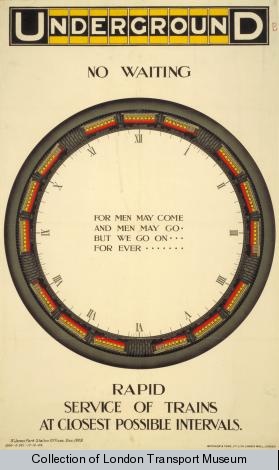
Some remarks on the recent bureaucracy post by Alex Williams.
- Interesting latest piece: I would chip in and say however that all this faith in the state, planning, bureaucracy etc seems to downplay the role which the state fulfils (and always has) within the dynamic of capitalism-as-process. Thinking back to the Deleuzo-Guattarean model of Capital as an axiomatic machine (surely the finest conception since Marx) I was struck by the place they held up for government as a vital element of stabilisation within the system, as a kind of homeostatic regulatory device which held in check the processes of voracious deterritorialisation so as to prevent the system from reaching an absolute velocity. So whilst government acts to restrain, it also acts to maintain capitalism at a liveable (ameliorated) rate. This is why a valorisation of the state is always a bit suspect - for a genuinely revolutionary praxis to succeed, it must identify the very existence of the state (any state) as such as complicit with capitalism. (also see ATP where they basically identify the state as responsible for re-territorialisation, as immanent models of realization for the axiomatic of Capital). This phenomenon (of valorising state power on the radical left) has always struck me as strangely performatively contradictory- on the one hand we seek an absolute rupture with the status quo, but on the other we continually seek to restrain the very processes which might lead to such a world-historical caesura! In this sense the left is not far from the kind of weakness which characterises a Geldofian pity-politics (and the oppressive metaphysics of man-as-suffering-animal that Badiou rightly diagnoses over and over again)-- in that for want of these immediate human beings suffering, we seek to ameliorate the system, when it is this very process of immediate gratification of moral impulses which leads to the continuation of the underlying problematic. This is precisely what I think is occurring with Geldof... the immediate need to satiate empathic responses which have become totally rewired and recoded within the current mass-mediatised environment from their original utility (ie: Bob sees a starving African child on the news, he wants to save that particular child). This immediate gratification, and the associated activities in pursuit of it serve to merely allow the underlying problem to persist, in a sense a classic example of counter-finality...
Further in this sense we might think of the period of 1945-1979 as being the very cause of the nightmarish restoration of hegemonic capitalist power that occurred 1979-200 (as a buffer zone which repelled genuine revolution all too effectively, prior to the re-assertion of the ultimate status quo). The state acts as a homeostatic function in this sense also, not only to restrain the capacious excesses of Capital unbound, but as a mediating device between capitalism and the dissatisfaction of the populous at large, a homeostatic safety valve, producing ameliorative padding for our political-economic cell like a perfectly functioning machine. We can see this operating even in the instance of the current crisis in advanced financial capital, (and this where the notion of "moral hazard" comes into question). If we are to believe Marx on this (cf: the third volume of Das Kapital, and I'm not certain we ought to, though he certainly makes some very interesting observations) credit and investments structured speculatively on top of this operate as an inversion of Capitalism from the inside out- and within the economic cycle it operates at the furthest reach of capitalistic expansion, but also as an immanent limit (again confirming D+G's hypotheses on the limits to Capital). Put in other terms, this is a decoding of the semiotic consistency of the money system itself, a detachment into insane lines of speculative flight, value being born ex nihilo as if conjured from the very ether. For Marx this is an assault on the basic underpinnings of his economics, and as such is "the highest form of madness", though we might posit this as revealing something more fundamental about capitalism than that (ie- where the processes, precisely as a process, heads towards...). But for the modern state, this "moral hazard" cannot be allowed to exist, and as such an institution of the size of Northern Rock or the banks which have collapsed in America recently are always bailed out by the government or a government-backed private body. The state as ever acts to patch up the excesses of rampant Capital, and risks which delivered private profits are immediately taken into public ownership when they become corrosive.
However, bureaucracy certainly could fulfil a subversive (nay terroristic) role, indeed this was an idea which occurred to me a while ago to deploy agents of bureaucratisation within a given body to spread like cancer the sclerosis of stratification, thereby clogging the arteries of communication within the body and thereby collapse its ability to effectively function (in effect a reversal of a Guattarean transversal institutional analysis, or a deliberate process of serialisation to use the Sartrean terminology). The historical precedence for this might be the collapse of Castilian government in Spain due to excessive bureaucratisation. However this is of course to continue with the idea of bureaucracy in its current pejorative form, rather than in the more positive notion of planning. It would be to ride the already existing processes of government and capitalism, as if in their slipstream, so as to accelerate them towards a position of radical dysfunction.
Re: the notion of refusal to accept the lack of overall control (there's no one driving... indeed) this is definitely the case, and can be seen by the proliferation of conspiracy theories. The notion that no-one is in control of this insane global mechanism is almost unthinkable, and hence is displaced onto a variety of (variously) Lizards, Jewish bankers, Illuminati, the NWO etc. It is actually more reassuring to think that we are in the hands of some secret global cabal than the reality, of a vast dispersed atomistic serial processes, with some larger actors (corporations and investment institutions) nudging and directing the process in directions which suit their profit-centred ends. I think that the system is not quite as diffuse as some might present it, in that it is in the interaction between atomistic components and institutional actors that the complexities of the whole arise...
He continues:
- For me the problem pivots around two linked considerations: (a) finding a vehicle to articulate radical political change (to mediate theory and praxis) in order to (b) work upon the relation between human subjectivity and the world. The difficulty is that radical theory is currently severed from any actual agency in the world - with the decline of actually existing communism and the failure of Marxist party forms, it appears that the politics of philosophy has become little more than a game (where all players pretend as if the stakes are high, imagining that the minor differences between, say, Deleuze and Badiou are important, as if they had real-world effects, when in fact they appear to have no impact whatsoever, because there is no vehicle or avatar to transform theoretical systems into actualised praxes).
On the idea of a renewed public sphere, isn't this close to Hardt and Negri's concept of 'the commons'? Which I suppose makes a lot of sense if your ontology is Spinozist in nature of course... Thinking about this from a Guattarian ecosophical viewpoint, couldn't we ground this quite practically in the literal material-economic necessity of linked ecologies? I've only just started reading late-era Guattari, but it seems to be the best articulation of radical politics + ecology + subjectivation-centred politics I have read... Further if we were to try and re-think the state, (and indeed other institutional structures) then his ideas of transversal analysis come to take on a real importance, not only in terms of the absolutely necessary compossibility of disparate problematics (mediatised human subjectivity, mental illness, the decline of art, environmental collapse, left wing politics) but also in re-thinking the structuration of the institution itself so as actually be able to engage with these problems... Certainly we must return to the Sartrean problem of the institution, either to liquidate it altogether or to render it fluid enough to operate effectively...
See also Owen's further comments.
August 14, 2008
I am angry, I am ill and I'm as ugly as sin...

The killer line in Momus's riposte to Adbusters' piece on hipsters is:
- I agree with my former boss at Vice, Gavin McInnes, when he says that disdain of hip subculture tends to come from "chubby bloggers who aren't getting laid", people who are "just so mad at these young kids for going out and getting wasted and having fun and being fashionable"
Whereas I would say the opposite: the problem with "hipsters" is precisely that they are pathologically well-adjusted, untroubled by sexual anxieties or financial worries. Vulgar Freudianism is not without its point - where is the motivation to produce art in people who can get any satisfaction they want, at any time? The very seamlessness of these unalienated, guilt-free lives leaves no material for sublimation. Momus anticipates
- 20something hipsters spreading out, in their 30s and 40s, in more and more individual directions, becoming artists, visionaries, eccentrics... or just settling down to bring up kids in a neighbourhood with an organic grocery and soya milk ice cream.
I'm assuming he's joking about the final option, but that is certainly on the cards, another example of the interlock between hedonism and ethics that is practically definitional of contemporary cultural stasis. When Momus cites American Apparel's "non-sweatshop activities" and the fact that its "advertising keeps low circulation lesbian magazines in print", it's hard not to be feel the full force of Zizek's (scandalous) call to withdraw precisely from participation in these kind of good causes.
The idea that these hipsters will go on to become "visionaries" and "eccentrics", however, strains credibility. No doubt, some will become "artists", but almost certainly it will be in that 00s dull-glossy, creative-careerist way which is not a move beyond hipsterdom, but its continuation. "The spiritual sloth Haddow accuses the hip subculture of", Momus continues, "is actually much more prevalent in the general population, which schlepps about in jeans and listens to shapeless, floppy music and sleepwalks through shapeless, floppy jobs." Fair point about the anti-glam slackness of the "general population", but the critique that Momus makes of Nathan Barley rebounds here: if Barley was preaching hellfire to the converted, then the hipsters' refusal of shapeless schlepping is, similarly, only readable by them. We're not dealing with grand displays of dandyism but an all-too tasteful micro-manipulation of codes, a narcissism too laconically balanced to ever trip over into anything so fascinating as obsession, too inhibited to ever register with the gaze of the "general population", except as a vague irritation at the periphery of awareness.

"Haddow comes over all purple, all 6th form apocalyptic", Momus complains, but a too-cool-for-school disdain for gaucheness and excess is one of the sad signs of the hipster syndrome. When youth culture was interesting it was because of alienation, not pleasure-seeking: the sense both that the young were not adequate to the world and also that the world was not adequate to them. I am nothing and should be everything. In their different, and often awkward ways, Metal, Goth and even, God help us, Emo, are still animated and enervated by that sense of abandonment and maladjustment, still prepared to be deformed and made ridiculous by their drives and disaffections. They are adolescent, for sure, but hipster, governed by fear of ridicule, tyrannised by self-consciousness, is adolescent in a far worse way. It is too comfortable in the world; or rather, all its effort goes into simulating the appearance of comfort. It never entirely rids itself of anxiety, of course, and worries over status, over measuring up, roil away beneath the conspicuously apathetic surface, but never in a way that threatens to undermine a centred sense of belonging and entitlement.
All of this returns us to the discussions on class and resentment from last year. Being at home (anywhere) in the world is usually one of the privileges (and markers) of class confidence. The Gavin McInnes' quote presupposes that resentment against the Last Boys and Girls is somehow illegitimate. But it strikes me as a classic case of good resentment - precisely the kind of resentment that, unlike the hipster's studied weltschmerz, could motivate the production of interesting art and culture.
August 11, 2008
From Tewkesbury To A Stakhanovism of Immaterial Labour

As No Leniency suggests, James Meek's piece on water privatisation in the LRB confirms much of what Owen claimed in this post. What's clear from Meek's article is the essential libidinal function that government plays in capitalist realism. It is there to be blamed precisely for its failure to act as a centralising power, the anger directed at it much like the fury Thomas Hardy supposedly spat at God for not existing. "Time and again, Conservative and Labour governments have discovered that when they give powers to private companies, and those private companies screw up, voters blame the government for giving the powers away, rather than the companies for misusing them. And it is much easier for governments to give powers away than to get them back."
And:
- In Tewkesbury in general there is more hostility towards the government, the council and the Environment Agency for not stopping housebuilders than there is towards housebuilders for building houses, or buyers for buying them. When insurers raise their premiums, more blame is directed at the government for not spending enough on flood defences than at insurers for raising the premiums, or at people who choose to live in a flood-prone valley but don’t like paying extra for it.
It was the same with Northern Rock of course - the media focus quickly fell upon the way that the government handled the crisis, rather than the bank's behaviour in the first place, the way in which the catastrophe was connected to wider banking practice, the role of deregulated finance etc.
I don't for a moment want to excuse New Labour for its part in such fiascos, but it has to be recognised that this is an act of deflection. Scapegoating an impotent government (running around to clean up the messes made by its business friends) arises from bad faith, from a continuing hostility to the 'nanny state' that nevertheless goes alongside a refusal to accept the consequences of the sidelining of government in global capitalism - a sign, perhaps, that, at the level of the political unconscious, it is impossible to accept that there are no overall controllers, that the closest thing we have to ruling powers now are nebulous, unaccountable interests exercising corporate irresponsibility. A case of fetishist disavowal, perhaps - "we know perfectly well that the government is not pulling the strings, but nevertheless..."
The perception that the problem with former nationalised industries lies with government, rather than private companies who actually now run them, is as tenacious as it is widespread. Anecdotal case in point: an incident that happened when the train was stuck somewhere between Suffolk and London last year. Two old ladies were sympathising with poor private rail companies for all the money they were selflessly and generously pumping into the railways, while castigating the government for starving the railways of resources. (When I interjected to point out that the railways cost taxpayers more now than they did when they were in public ownership, there was an enormously gratifying 'McLuhan in Annie Hall' moment when a railway worker who happened to me nearby weighed in on my side.)
Meek's article also shows how this connects with a sinister race narrative, also depressingly widespread in New Labour Britain.
- [Someone affected by the flood] believes the government has starved Tewkesbury of money for flood protection, while encouraging development in flood-prone areas. The government, he pointed out, was planning to build three million houses by 2020. And why, he asked, did they want so many? ‘If you believe the Daily Express,’ he said, with a look that suggested he was being bold to raise the idea that I might not, ‘we’re going to have 600,000 immigrants a year from now on.’
A neoliberal disaster is somehow the fault of immigrants; mysteriously, however, there are few if any concerns when money from water rates is diverted to overseas companies, as Meek, piling on the irony, notes:
- One positive side of water privatisation is that it has shown a surprising degree of international generosity on the part of the English public. Popular fury at the impositions of Brussels may be mainstream, but it isn’t reflected in the calmness with which English water customers hand billions of pounds over to their monopoly water providers each year, only to see them transmit large chunks of it overseas. Anglian Water, for instance, is owned by a company called Osprey, much of which, in turn, belongs to the Canada Pension Plan Investment Board. It’s impressive how little troubled the captive customers of Anglian are that whenever they turn on the tap they are, in a small way, helping to ‘sustain the future pensions of 17 million Canadians’, as the CPPIB puts it.
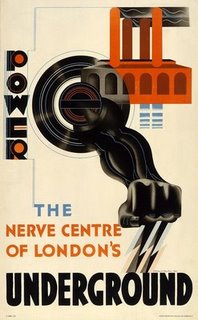
Just as "New Labour has managed to claim for itself the worst elements of bureaucratism - meaningless targets, idiot optimism, a contempt for privacy and an obsession with surveillance and control - without a hint of the benevolent despotism of [bodies like the London Transport Board]" (Owen), so former nationalised companies betray all the worst traits attributed to publicly owned bodies - arrogance, intransigence and a monopolistic domination of markets - but none of the public accountability. Water companies answer first to their shareholders, never to the public (the public having been liquidated/transformed/fragmented into a mass of consumers with privatization). Such companies seem peculiarly ill-prepared for when things go wrong, and, as a consumer in late, late capitalism, you increasingly exist in two, distinct realities: the one in which the services are provided without hitch, and another reality entirely, the crazed Kafka labyrinth of call centres, a world without memory, where cause and effect connect together in mysterious, unfathomable ways, where it is miracle that anything ever happens, and you lose hope of ever passing back over to the other side, where things seem to function smoothly. (Cf my recent dealings with BT... fill in your own examples...)
One of the most interesting things in Owen's post, of course, is the audacious bid to revalorise bureaucracy itself. But I wonder if it isn't planning rather than bureaucracy which is the term that ought to be valorised. The difference between the LTB programmes that Owen celebrates and New Labour/ neoliberal "administration" is that, in the former case, planning was conceived of as the origin/support for actual architectural projects; whereas, in the latter case, bureaucracy is the end goal itself, the beginning and teleological endpoint of the initiatives. (That is partly why I believe it is tactically important to retain bureaucracy as a pejorative - to argue that, far from having rid us of bureaucracy, as promised, neoliberalism has produced this bureaucracy-in-itself.) New Labour initiatives are designed to generate PR and statistics, not real world effects - or rather, real world effects matter only insofar as they register at the level of (PR) appearance. Needless to say, this is directly homologous with the way value is generated on the stock exchange, which depends of course not on what a company "really does", but on perceptions of, and beliefs about, its performance.
Which brings us to Savonarola's analysis of academic curriculum mortis. The ways in which academic work is evaluated shows that bureaucracy is not a force "out there", but something inherent to this mode of immaterial labour. The bureaucratic apparatus and its "aims and objectives" have to be internalised and incorporated into an ongoing process, an assessment without end:
- the passage from the RAE to the REF, from periodic and measured measurement (however skewed, prejudiced and instrumental to various hierarchies and supremacies) to permanent and ubiquitous measurement cannot but result in a kind of Stakhanovism of immaterial labour, which like its Stalinist forebear exceeds all rationales of instrumentality, and cannot but generate a permanent undercurrent of debilitating anxiety (since there is no standard, no amount of work will ever make you safe).
Bat mailbag
Some responses to the Dark Knight post...
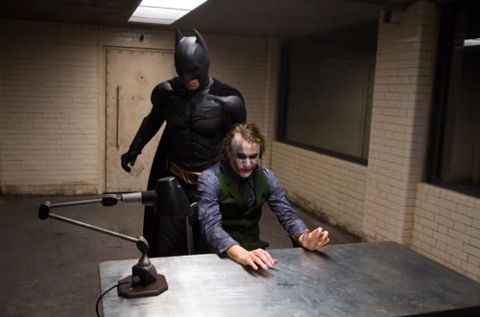
Savonarola:
- The relentlessness of the time-torture motif, and the laying bare of all its psychic contradictions, is quite a testament to how impacted in it is in the American mindset (and it wouldn't be too farfetched to see DK as a kind of negative-dialectical dismantling of the reassuring virility of 24 scenarios). The real political "problem" with the films (which is also a political insight) is the amorphous impotence/homogeneity of the populace, which perhaps fits in with your Straussian theme. It is a sign of the times that the people is simply a fickle opinionated multitude (or a *family*) to be pacified by the mythic trappings of the Law, saved by the scapegoat-outlaw, or on the brink of nihilist anomie (save when the individual - as in the 2 ferries, with their ethical criminal and hesitant "upright" citizen - chooses the good, AGAINST THE VOTE). The social theory of these films if very turn of the (other) century: Gustave Le Bon, Gabriel Tarde, etc. (theory of crowds); Pareto, Michels, Mosca (theory of elites and oligarchies). Never a collective in sight (which is not a slight, but a testament to the present parameters of the imaginable).
Scott Duguid:
- 1) Although my appreciation of his rather garlanded Joker (and of the Dark Knight in general) is not unreserved, you're correct to say that the strength of Heath Ledger's performance consists in his playing the mask. What sanctions that, however, for me is the mask's transparency. The misapplied make up is not an extension of the rictus, as with Nicholson's Joker; rather the mismatched smear points us to the face, as do other tell tale signs (splodges of pink flesh under the white, the rather deep ridges of wrinkles). The message is: the face is the mask. And hence no backstory, or, which is to say the same thing, no locatable history of trauma (which again is to say, cause).
2) I'm also a big fan of the Cesar Romero Joker. Who was of course Cuban (and gay, for that matter). I've not the time to prosecute this at length, but given your take on the idea of the mask here, its at least worth considering the racial stakes at play in Romero's Joker make-up. Its hardly a question of passing, for actor or character. But, still, there is something about that whiteface in the Joker, and not only in Romero (cf. an albino isn't even white). Nor, in terms of sexuality, is there a question of the actor projecting through the mask (as "camp" as sixties Batman gets, his is in no sense a nelly Joker).
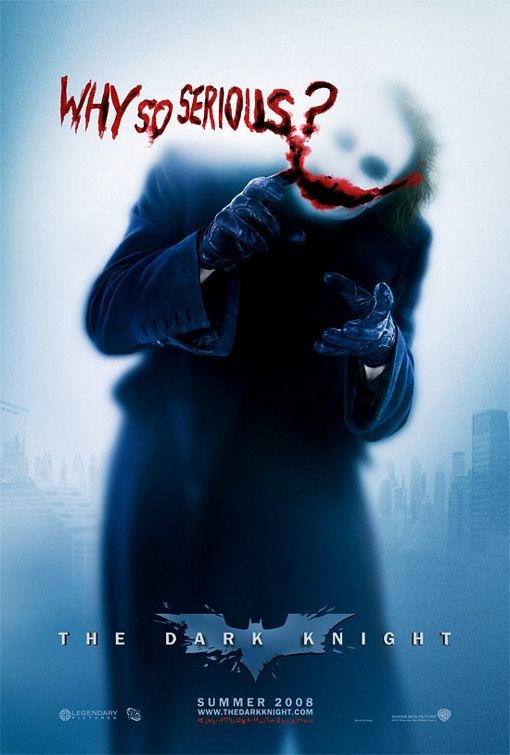
Wayne Wedge
- I have had very mixed feelings about this movie since seeing it - my first reaction was that it was 'fascist' (its imagery was what 'hit' me first) but the more I think about it, the more meanings it takes on - and it was deliberately contrived to do that. Whatever our 'intellectual' vanities (or infantile geek fetishes), we are encouraged to participate in the movie as an event. It encourages repeat viewings , word of mouth buzz and those highly profitable DVD sales (I can see the holographic metal box-set alreay). Along with its hype, acclaim and the seemingly infinite discussion of it, the movie - both as pseudo-event and narrative - is a deafening, oppressive noise.
- It is the perfect Hollywood machine - so much and incident it becomes incoherent and strangely plotless. Violence and power as spectacle but savvy enough about its 'demographic' to appear ambivalent. It can create flattering illusions of being left-wing, right-wing, liberal, mystical, dialectic or whatever (endless discussion boards and blogs invoking Nietszche, Milton Friedmann, Leo Strauss, Walter Benjamin, Heidigger, George Lukacs, Aleister Crowley, Michel Lacan etc. etc. to discuss a cartoon character in a rubber suit).
- Oscar-nominated/winning actors coupled with a smart-ass 'indie' director to give this huge merchandising operation a surface sheen of being 'serious' (with 'dark' being as meaningless as 'cool' as a term of praise). Ugly, sadistic imagery choreographed to beat/seduce the viewer into sumbmission. No characters per se - just archetypes explaining what they are (as if we wouldn't know from 70-year old characters), in case the 13 year olds get bored between car chases. Technological fetish (in and outside the narrative). Racial stereotypes supposedly balanced by a 'magic negro' - to absolve us of our fevered pleasure in conservative backlash fantasies.
- Witnessing characters we would hate in real life (ambitious 'law and order' politicians and their psychotic financial backers/enforcers) 'struggle for their souls'. Vaguely defined (or multivalent) villainy as an immovable mysterious force from nowhere (see also I Am Legend - and its endless zombie variants, There Will be Blood and No Country for Old Men - those oscar voters love their demonic forces, don't they?).
- The last two books I read were 'Black Mass' by John Gray and 'The Shock Doctrine' by Naomi Klein - both of which could be titles for the next Batman movie, as well as serving as terms of reference in accessing the context of this movie. It recklessly toys with contemporary 'relevance' and social/political/sexual anxieties while hiding behind digestible pop culture posing (or the reverse in the eyes of some critics). A lucrative kiddie icon self-consciously invoking the nightmares of history. TimeWarnerAolHalliburtonBlackwaterWayneenterprises demanding that we gather in our millions to watch, re-watch, discuss and argue about this corporate meta-product arguing with itself.
Wayne also notes...
- how 'Weimar' the whole film seemed (Batman as the Golem, Joker as Dr. Mabuse/M, Gotham as Metropolis etc.)? Watching a couple of Fritz Lang classics recently, I couldn't help but think of TDK (and Nolan's films in general). Ledger was much more Peter Lorre or Conrad Veidt than Sid Vicious or Malcolm McDowell.
August 06, 2008
Rebel without a cause
(CONTAINS DARK KNIGHT SPOILERS)
- Andrew Klaven: Why is it ... that left-wingers feel free to make their films direct and realistic, whereas Hollywood conservatives have to put on a mask in order to speak what they know to be the truth?
Zizek: What I despise in America is the studio actors [sic] logic, as if there is something good in self expression: do not be oppressed, open yourself, even if you shout and kick the others, everything in order to express and liberate yourself. This stupid idea, that behind the mask there is some truth. .... Surfaces do matter. If you disturb the surfaces you may lose a lot more than you account. You shouldn't play with rituals. Masks are never simply mere masks.
There are many symptomatically interesting things about the right wing attempts to appropriate The Dark Knight that are doing the rounds at the moment. The idea is that the Batman of the film equals Bush - a misunderstood hero prepared to make 'tough choices' in order to protect an ungrateful population from threats it is too ethically enfeebled to confront.
In a couple of intricately argued posts, Inspersal demonstrates that The Dark Knight by no means presents 'tough choices' as 'hard but necessary'; on the contrary, whenever Batman resorts to torture, it either yields nothing or is counterproductive. What neocon readings of the film must overlook is that this is exactly the same in geopolitical reality: far from being unpalatable but necessary, the Iraq misadventure, Guantanamo Bay, extraordinary rendition etc have either achieved no results or made things worse. What's interesting here is the doggedness of the neocon fantasy, which is precisely a fantasy of 'being realistic' - astonishingly, elements of the American right appear to actually still believe that the Bush admininstration's policies are successful, and that the American public has rejected them on the grounds of highminded (liberal) ethical qualms rather than for pragmatic-utilitarian reasons (too many of our boys being killed).
Secondly, what these readings also miss is the actual nature of the model of virtue presented in the film. If this is (neo)conservative, it is not at the simple level of utilitarian calculation of consequences. What we are dealing with is a far more complicated Straussian meta-utilitarianism whose cynical reasoning is akin to that of Dostoyevsky's Grand Inquisitor. Deception - of the masses by the elite - is integral to this account of virtue: what is 'protected' is not the masses' security but their belief (in Harvey Dent's campaign).
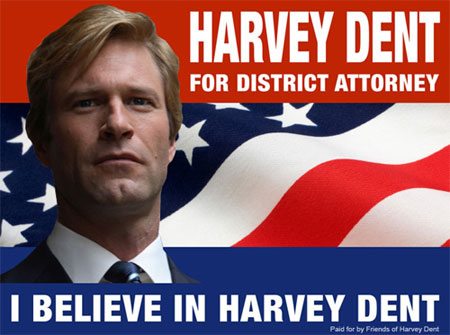
As Inspersal argues, the emphasis on deception in The Dark Knight is one of the themes that connects it with Nolan's previous films, and Batman's climactic act of self-sacrifice is precisely an act of deception. It takes place at the level of signs: what he must give up is his reputation, his good standing in the eyes of the Gotham public. The act of deception doesn't conceal an underlying good act - it is the concealing that is the good act itself.
Thirdly, the neocon readings misconstrue the nature of 'evil' in the film. If these rightwingers really think that Osama bin Laden is like The Joker as he appears in The Dark Knight, that gives us another, intriguing, insight into their fantasies. (Matthew Yglesias says, "I look at the movie and say 'see -- if you were fighting a comic book bad guy and you were a comic book hero then your policies would make sense.'" But even this isn't the case, as Inspersal's arguments above make clear.) Or rather, it reveals the inconsistency on which Islamophobic fantasy depends: the Islamist is both "an agent of chaos", someone without a cause, and a zealot excessively attached to a cause.
What's interesting about The Dark Knight is that is not really about Good versus Evil at all but 'good causes' versus aberrant modes of cause/ causality. The Joker and Two-Face are mad rather than bad, and their insanity is centrally connected with their relationship to cause. The Joker is pure Terror, that is, Terror detached from any cause:
- You see, nobody panics when things go according to plan. Even if the plan is horrifying. If I told people that a gangbanger was going to get shot, or a busload of soldiers was going to get blown up, nobody would panic. Because it's all part of the plan. But tell people that one tiny little mayor is going to die and everyone loses their minds! Introduce a little anarchy, you upset the established order, and everything becomes chaos. I am an agent of chaos. And you know the thing about chaos, Harvey. It's fair.
While Batman is drawn into utilitarian calculations, The Joker is free in the same way that the death drive is free: he acts with indifference to consequences, glorying instead in a kind of ungrounded unbinding of orderly causal sequences. The reference to "fairness" above is not idle. As an imp of the perverse, The Joker stands for an inverted (or freaked) Kantian justice. In many ways, we are looking at the reversal of Kantianism into Don Giovanni Zizek has described many times (Don Giovanni's decision not to save himself, to maintain his commitment to his libertinism even when doing so will result in his execution, becomes an ethical gesture). The Joker acts without any pathological interests, grandly symbolising his lack of instrumentality with the burning of the pyramid of money.
Two-Face's insanity is also a kind of haemorrhaging of justice. In his case, the championing of a good cause - which it seems will inevitably leads to terrible consequences - is displaced by an embrace of chance's random causality (heads/ tails). The flip into randomness is not an abandonment of justice, but the quest for a justice that will not be corrupted by human will - in its very impersonal mechanism, chance is fair because it does not privilege any outcome or any individual. Interestingly, it is only when Dent becomes Two-Face that his coin tossing is fair; when Dent is the "White Knight" DA, his coin is loaded (it has heads on both sides). What also interrupts the orderly sequence of causality in Dent's case is trauma - the trauma of seeing Rachel die, which is itself a consequence of a binary choice trap, one of a series of such traps The Joker attempts to spring.
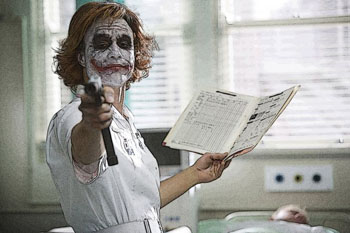
The by now standard view of The Dark Knight - that its real libidinal pull is not the peripheral Batman/Wayne, but the charisma of Heath Ledger's Joker - is certainly correct. When I heard Ledger's performance celebrated, I feared the worst: that we were going to see the actorly overplaying that usually garners this kind of ubiquitous praise. But it is to Ledger's immense credit that he completely avoids what Nicholson was allowed to do in Tim Burton's dreadful Batman: we get no glimpse of the actor behind the role (with Nicholson, of course, that's all we got). There is also no question of Ledger appearing bare-faced for any significant length of time, as Tobey Macguire and Julian McMahon were allowed to in Spider-Man 3 and the Fantastic Four films respectively. Thankfully, there is only the briefest glimpse of The Joker sans make-up in The Dark Knight.

What Ledger does, in many ways, is play the make-up. I should stress here that the make-up, which makes Ledger's face look like a malevolent monkey leering from behind cracked plaster, manages a feat that is near impossible: it reinvents The Joker look whilst also maintaining fidelity to the comics (compare the Green Goblin's mask and outfit in the Spider-Man films, whose divergence from the halloween hood in the comics always disappointed me). My one point of disagreement with Inspersal concerns his claim that Ledger's performance "shows the Nicholson/Burton interpretation to be much closer to Cesar Romero from the TV show, rather than Alan Moore's version from The Killing Joke, allegedly Burton and Hamm's chief influence". I would argue in fact, that it is Ledger's performance that is closer to Romero's, and that is why it works so well. Nicholson's pomo posturing and Moore's psychological depth were all of a piece, and both were far less terrifying than the senseless gibbering of Romero's pantomime-turn Joker. The Joker was always fascinating because, unlike most if not all big-time supervillains, he was pure surface, motiveless madness, devoid of any origin or backstory - until Moore obligingly filled one in, as his hamfisted pseudo-literary wont. There are a couple of great scenes in The Dark Knight where Ledger's Joker mocks cod psychoanalytic reduction: "See these scars... I got them because of my father." "See these scars... I got them because of my wife." (This reminded me of nothing so much as Ian Bannen's chilling burst of explosive laughter in Sidney Lumet's The Offence, in response to Sean Connery's question: "Was your father a big man?") If The Joker aligns himself with anything it is 'the freak', which cannot but remind us of freak events, that is, events which appear to happen without proper causation. By evacuating The Joker of all interiority, by refusing anything which would contain the Joker's wildness or compromise the autonomy of his facepainted persona, Ledger's performance (and Jonathan Nolan's script) do justice to the freakish.
